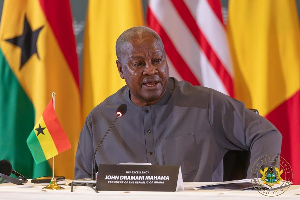Experts have estimated that two-thirds of the world's population will live in water-stressed countries by 2025. The stark prediction is corroborated by world leaders who agree that pressure on water was one of the factors that could help countries "tip into instability, state failure or conflict".
Research has shown that already well over one billion people suffer from water shortages and 30 countries get more than a third of their water from outside their borders. With climate change, those figures are likely to grow, increasing the possibility of disputes.
The Coalition of Charities thus appealed for a global effort to bring running water to the developing world and supply sanitation to a further 2.6 billion people. It said international action was needed to prevent competition for water destabilising communities and escalating into conflicts.
No doubt, tackling water and sanitation crisis is essential if the 'Millennium Development Goal Call to Action' is to be a success, otherwise progress on health, education and environmental sustainability will be undermined. Each year 443 million school days are lost globally to diarrhoea and 1.8 million children die unnecessarily from these diseases. For this reason, any developing country, especiallly Ghana which wants to attain middle income status cannot afford to leave water and sanitation to forces of demand and supply.
Investing in sanitation and water brings the greatest public health gains of any single development intervention and delivers huge economic returns. That is why we urge our government to make the provision of water and sanitation the sovereign right of Ghanaians.
It has been predicted that Ghana will become largely urbanised by 2015. The signs of urbanisation are clearly written on the wall.A growing and increasingly urbanised global population will increase demand for food and water, at the same time as climate change and other trends put greater pressure on their supply. As we celebrate world water day, it is only hoped that policy makers are making the right choices to ensure that majority of Ghanaians get water at the point of need and not on their ability to pay. And the onus is on any government worth its salt to provide the most basic neccessity like water to its citizens.
Editorial News of Friday, 28 March 2008
Source: Public Agenda
EDITORIAL: World Water Day Amid Water Shortage
Entertainment











